Amazon, the e-commerce giant, has just taken a new step that could well revolutionize the real estate market as we know it. Indeed, the platform recently launched an offer that seems straight out of a futuristic dream: houses delivered turnkey for the modest sum of 20,000 euros, with a promise of delivery in less than three months! This bold, innovative concept marks a new stage in the evolution of modern living.
A real estate market at half-mast
The real estate market is currently going through a difficult period. There are three main reasons for this:
- rising material costs, due to inflation and rising energy prices, which in turn are driving up the cost of building work and construction.
- bank loans more difficult to obtain. This is due to rising interest rates, which make borrowing more expensive, but also because loan conditions are much stricter too
- stricter legislation on housing quality, which makes some properties unfit for renting or even uninhabitable. This is leading to mass sales of inexpensive homes that require major work, which few are willing or able to pay for.
All in all, the picture is very bleak, with sales of new housing almost halved by 2023. Yet the need for housing is still there.
Amazon, a new player in real estate?
Amazon could well revolutionize this field by offering homes for less than €20,000, deliverable free of charge in less than 3 months anywhere in France! At a time when the housing crisis is hitting hard in many parts of the world, Amazon's initiative could well be seen as a breath of fresh air.
These homes, designed to defy all expectations, not only promise an affordable solution for those looking to become homeowners without breaking the bank, they also offer a rapid response to urgent housing needs.
But how does Amazon manage to come up with such an offer? The answer lies in the innovation and efficiency of modular construction. These homes are mass-produced in factories using state-of-the-art production techniques, considerably reducing construction costs and lead times. Once manufacturing is complete, the modules are shipped to the building site, where they are assembled to form the final home. This process, from design to delivery, is designed to be as smooth and seamless as possible, guaranteeing maximum customer satisfaction.
The aesthetics and functionality of these homes are also at the forefront. Despite their relatively low price, these homes do not skimp on quality or style. They are designed to be modern, comfortable and eco-responsible, meeting consumers' current demands for sustainable development.
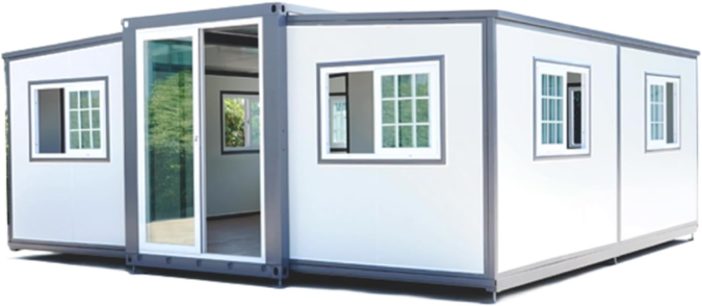
This 35m2 model, for example, retails at €19,300, and features a bathroom with shower, and a fitted kitchen with cupboards. In fact, this is not just a “4 walls”, but a house ready to be lived in.
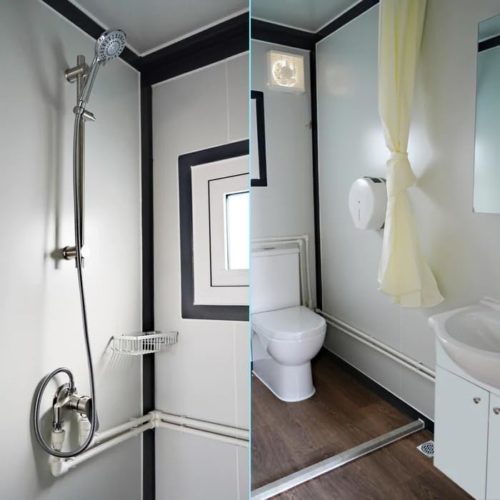
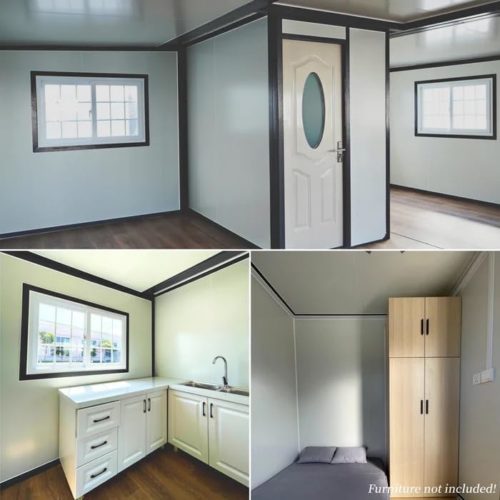
As for sturdiness, they are indicated as being “waterproof and thermally insulated”, as well as “earthquake and wind resistant”.
Their modularity means they can be folded for easy transport, while being easy to assemble and dismantle to simplify removals. And yes, this type of housing means you can take it with you when you move!
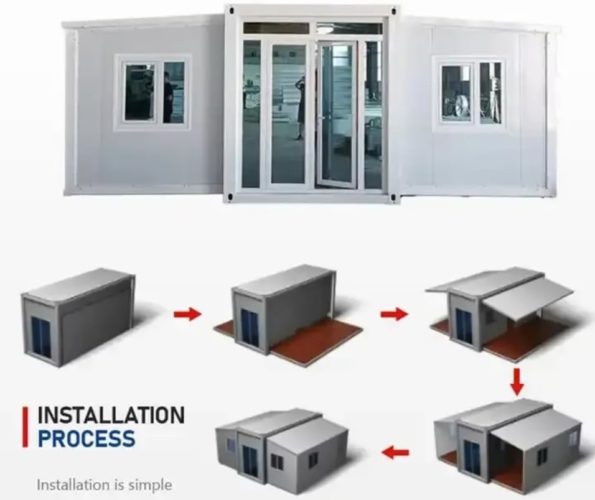
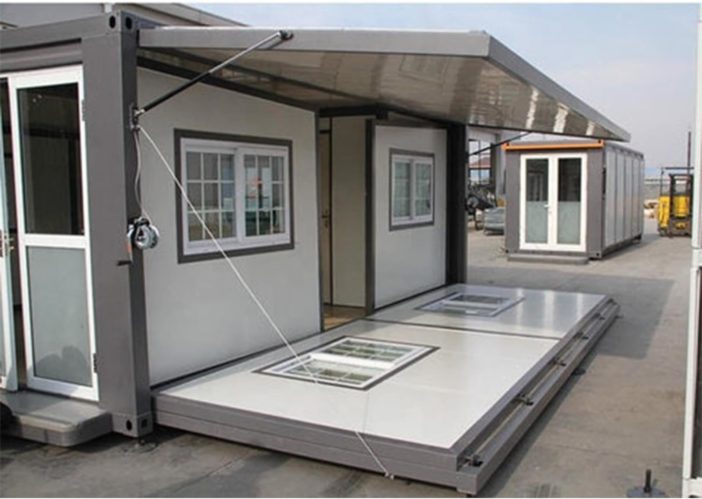
To better understand the principle, youtuber Unspeakable published a video a few weeks ago to illustrate the simplicity of assembling these houses. He accomplished the task with the help of a few friends and without recourse to an instruction manual, despite a living area of almost 35m² for a property purchased for $35,000 (around €32,500).
Impressive, isn't it?
Of course, this type of “low-cost” housing isn't new: for several years now, it's been possible to find wooden chalets at around €20,000 for an equivalent surface area, which you can assemble yourself:
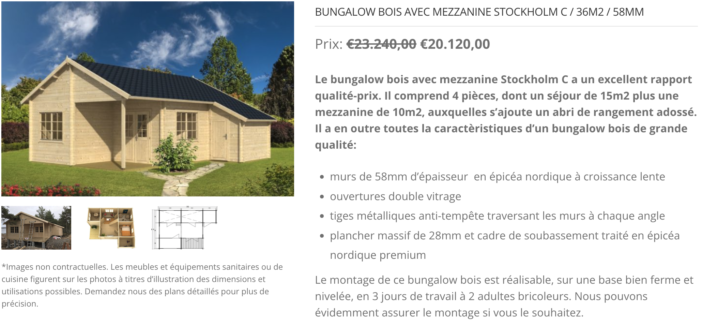
However, assembly and dismantling are more complex. But it's above all the distribution via Amazon that could change the game and democratize this type of housing.
Conclusion
Amazon's initiative does, however, raise some important questions. What impact will it have on the traditional real estate market? How will builders and developers react to this unprecedented competition? And what are the implications for local communities and the environment?
What is certain is that Amazon's offer has the potential to radically change the way we think about property and housing. By making home ownership more affordable and reducing construction times, Amazon could well be at the forefront of a genuine real estate revolution. It remains to be seen whether this promise will be kept, and whether consumers will be ready to embrace this new form of housing.
Amazon's entry into the low-cost prefabricated home construction sector is a fascinating development that deserves particular attention. Not only does it represent a significant advance in terms of technology and construction efficiency, it also raises fundamental questions about the future of housing and urban planning. Only time will tell whether this initiative will be the start of a new era for the real estate market, or just another bold experiment in the ever-changing world of online commerce.

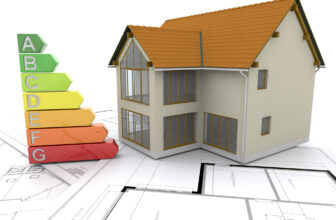




Please remain courteous: a hello and a thank you cost nothing! We're here to exchange ideas in a constructive way. Trolls will be deleted.